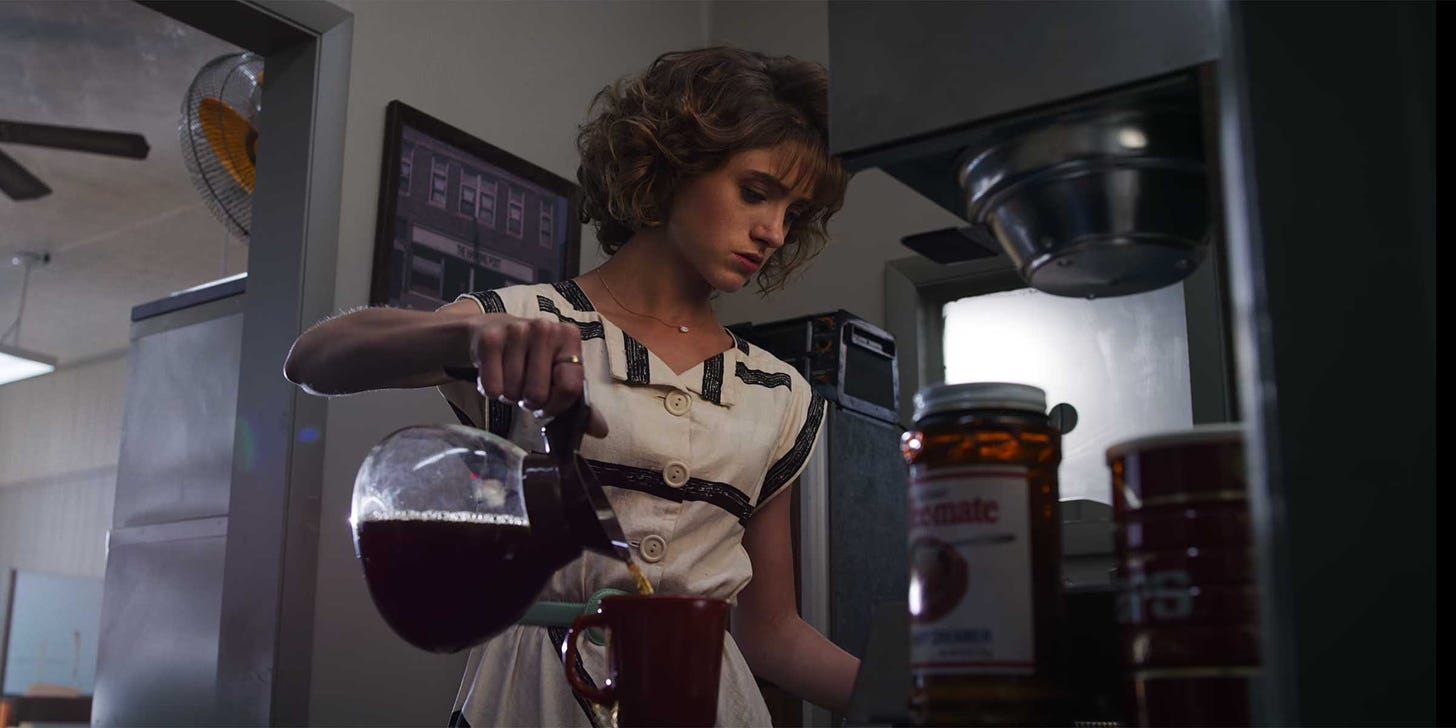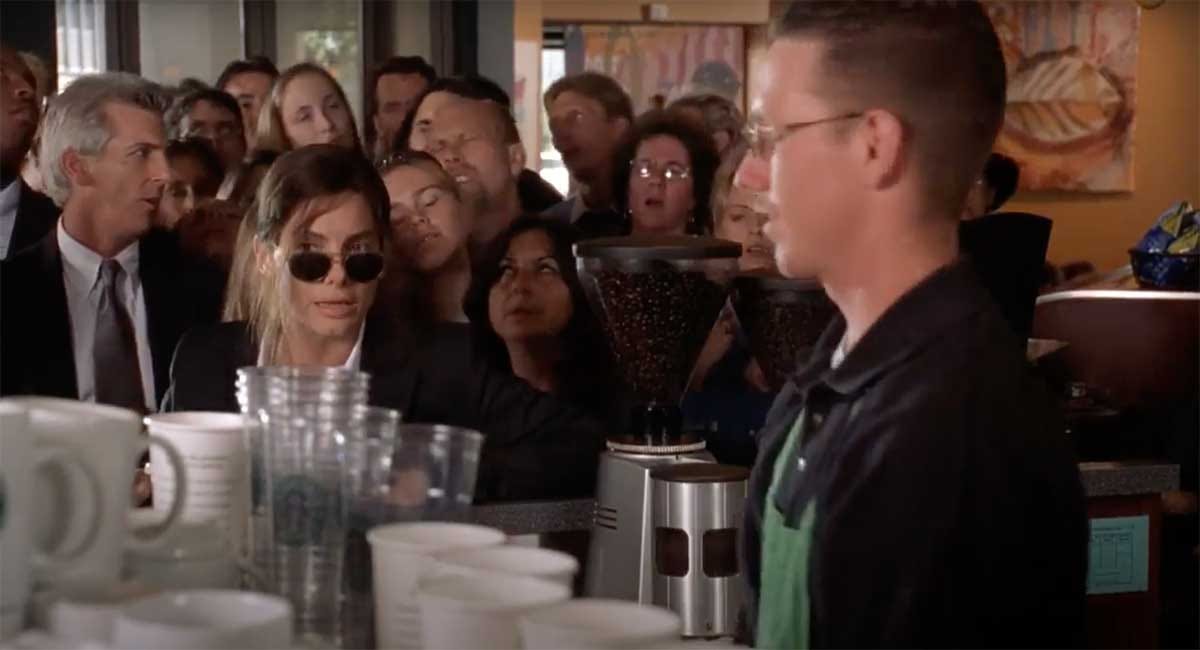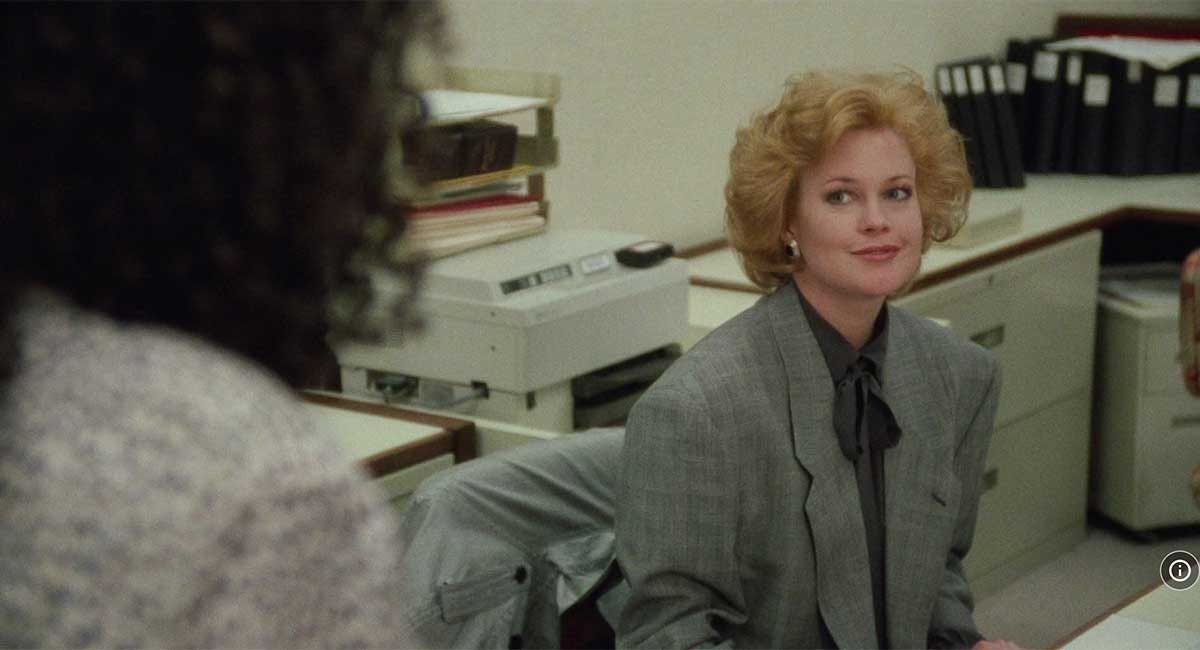What do Nancy Wheeler, Grace Hart and Tess McGill have in common?
A summer intern who gets breakfast and coffee for the guys at the office, an FBI agent tasked with picking up coffee for her male colleagues on the way to work, and a new boss with a different idea.
Stranger Things, Season 3. Nancy Wheeler (played by Natalia Dyer) and Jonathan Byers (played by Charlie Heaton), both incoming senior high schoolers, are hired as interns at Hawkins Post. While Jonathan gets legit tasks — taking photos and developing films — Nancy buys breakfast sandwiches and makes coffee for the all-male editorial / reportorial team of the newspaper. She gets laughed out of the conference room when, after distributing the sandwiches, she tries to suggest a good subject to cover for a newspaper story.
Okay, so the scene was supposed to have taken place in 1985 when not too many people were aware that misogynism was a word. Women have lived with prejudice for centuries, and that prejudice was alive and well in the 1980s. A woman might be intelligent and ambitious, but she was still a woman in a man’s world. That, apparently, was the message of The Duffer Brothers insofar as Nancy’s stint at Hawkins Post went.
But let’s move on to another movie with a strong, intelligent and ambitious woman.
Miss Congeniality came out in 2000. FBI Agent Grace Hart (played by Sandra Bullock) is demoted to a desk job after a fellow agent got shot when she disobeyed her superior’s orders during a sting operation against the Russian mob.
Apparently, part of the desk job was to stop at Starbucks on the way to the office and order coffee for her male co-workers. The scene was meant to be funny. She cuts through the queue of customers and flashes her badge when someone tells her to get lost. But the humor gets doused with cold water when one stops to ask why she has to be the one to get everyone’s coffee.
But 1985 and 2000? They’re so long ago! Besides, Stranger Things and Miss Congeniality are fiction. If you were watching those scenes in Stranger Things and Miss Congeniality today, would you have ever questioned why it was Nancy’s and Grace’s job to get the coffee? Or is it something that you’d accept as natural?
Those two scenes are accurate illustrations of how women were treated at work in real life (I’d say “are” but let’s get to that later). I know. I am a woman and, between 1985 and 2000, I worked in two law offices successively. I’m a lawyer so, no, no one dared ask me to make coffee.
But.
In the first office, the boss was a woman. She had a secretary whose job included making her coffee, picking up her laundry and buying whatever her son needed for his homework. Shades of Miranda Priestly, yes. Very much so.
In the second, the bosses were both male. Each had a female secretary whose job included making coffee not only for them but, during conferences, for clients too.
Post 2000, I worked in another office. The secretary brought me coffee without being asked. Apparently, my predecessor demanded the service and she believed — and accepted — that making coffee for the boss was simply part of an efficient secretary’s job.
The notion that making coffee at work is a woman’s task persists in the real world. The woman makes coffee at home for her husband and, hence, by extension, it’s her job to make coffee for the boss. Sometimes, it’s not just for the boss but for any male who tells her to.
Just a few weeks ago a female partner in a law firm recounted that a (male) client had asked her to step out of the room to make coffee while he discussed his options with her (male) assistant. This is 2019!
Source: “It's 2019 And Women Are Still Being Asked To Make The Coffee” in Forbes
I don’t know how much of a game changer the pandemic has been in relation to this perceived natural role of women at work. With more people preferring to work from home, I’m wondering who makes coffee for whom.
Personally, I find that the best philosophy came out of 1988’s Working Girl.
In the film, Tess McGill (Melanie Griffith) is a business grad trying to make it in the corporate world where the males treat her like a bimbo. She becomes the administrative assistant of Katharine Parker (Sigourney Weaver). At their first meeting, her new boss tells Tess, “Why don’t you pour us a couple of coffees and come inside. I’m light, no sugar.”
The boss encourages her to share her ideas then eventually tries to take credit for a merger proposal that Tess came up with. Not that Tess is faultless. She does try to become Katharine in her absence — wears her clothes while living in her house and she steals her boyfriend too. But, in fairness to her, by the time she becomes a boss after Katharine is fired for credit-grabbing, Tess tells her new secretary, Alice:
“I don't expect you to fetch me coffee unless you're getting some for yourself.”






